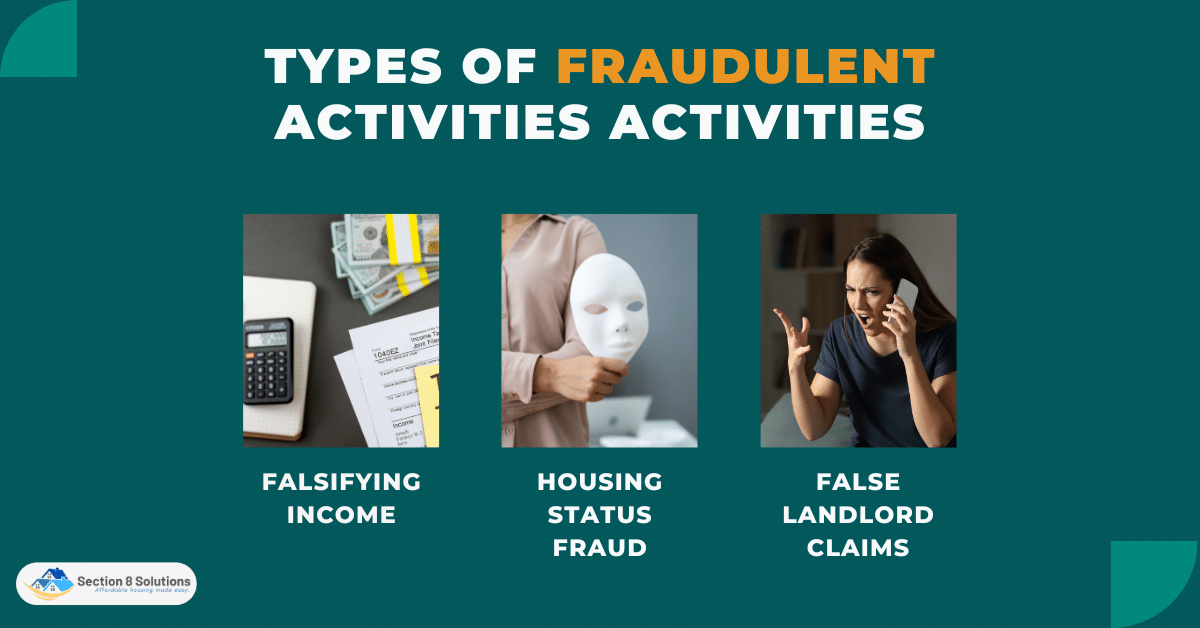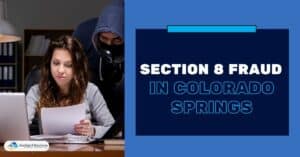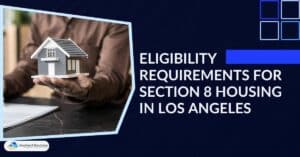A housing authority or member of the public can report Section 8 fraud or abuse. The investigative agency, usually the Office of Inspector General, will next interview witnesses, gather evidence, determine if fraud or abuse happened and take legal action.
In this article, we will discuss the Section 8 Housing Authority Investigation Process in detail, including the types of fraudulent activities that investigators look for, how the investigation process is initiated, and the consequences for those found guilty.

Types of Fraudulent Activities
The Section 8 program is designed to provide housing assistance to low-income families, seniors, and individuals with disabilities. Unfortunately, some people attempt to defraud the program by engaging in activities that are illegal or violate program rules. Here are some common types of fraudulent activities that investigators look for:

1. Falsifying Income
Under the Section 8 program, one of the most common types of fraud is income falsification, which entails either underreporting one’s income or neglecting to record all of one’s sources of income in order to qualify for further aid. This conduct is harmful to the program as well as to the individuals who are in need of aid, and it may result in criminal charges, fines, and other consequences.
It is essential for renters and landlords to have a thorough understanding of the program’s rules and to notify the appropriate authorities of any suspected fraudulent activity in order to preserve the program’s credibility.

2. Housing Status Fraud
Housing status fraud involves falsifying living arrangements to collect Section 8 payments. This includes claiming to be homeless, having more people in the household than live there, or other living conditions misrepresentations. Fraud like this takes resources from people who need them and makes program participants feel unjust and resentful. To ensure program integrity, tenants and landlords must know the rules and report suspected fraud.
3. False Landlord Claims
False landlord claims are another type of fraudulent activity associated with the Section 8 program. This type of fraud involves landlords providing false information to the program, such as overcharging rent or inflating the cost of repairs, in order to receive more funds from the program.
False claims not only take resources away from those who truly need them, but they can also harm the tenants who are living in substandard housing or paying higher rents than they should be. Landlords who engage in false claims may face serious consequences, including fines, legal action, and even the loss of their ability to participate in the program. It is important for tenants to report any suspected fraudulent activities by their landlords to the appropriate authorities.

Referral and Initial Investigation
Program employees investigate fraud referrals to learn more. This investigation may interview renters, landlords, and other relevant parties. To detect fraud, program employees will examine leases, rent receipts, and income statements. If the initial inquiry finds fraud, law enforcement or other investigative agencies may be involved.
Program employees investigate fraud referrals to learn more. This investigation may interview renters, landlords, and other relevant parties. To detect fraud, program employees will examine leases, rent receipts, and income statements. If the initial inquiry finds fraud, law enforcement or other investigative agencies may be involved.
It is important for tenants and landlords to be aware of the referral and investigation process and to report any suspected fraudulent activities promptly. Reporting fraudulent activity can help to maintain the integrity of the program and ensure that resources are being used to assist those who truly need them.

Evidence Gathering
Investigators gather evidence after an initial investigation of suspects’ fraud. Surveillance, landlord/tenant paperwork requests and witness interviews may be used. Investigators may collaborate with law police or financial organizations to gather further evidence.
Uncooperative witnesses or lack of documentation might make evidence gathering difficult. Investigators may need to get warrants from law enforcement or use forensic accounting to find financial inconsistencies.
Investigations require transparency and cooperation. Tenants and landlords should be truthful and supply necessary documentation promptly. Failing to comply with an investigation might increase suspicion and lengthen the process. Investigators must be professional and ethical, obtaining evidence legally and respecting privacy rights.

Determination of Fraudulent Activities
Investigators will determine fraud after gathering evidence. Based on a preponderance of the evidence, this decision shows that fraudulent acts have occurred. These investigations require detectives to obtain enough evidence to prove fraud. Investigators may use surveillance footage, documents, and witness testimony.
Fraudsters can face hefty penalties. This may entail repaying false cash and legal action including fines, incarceration, or program expulsion. The guilty party may be required to pay damages to victims of their fraud.
Fraudulent acts have serious implications, thus people should collaborate with investigators. By doing so, users can assist guarantee that the program is helping those who need it most and that fraudulent actions are not diverting resources from them.

Appeals and Recourse
If an individual is found guilty of fraudulent activities, they have the right to appeal the determination. The appeals process typically involves submitting a written request for review and providing additional evidence to support their case. The review will be conducted by an independent party who was not involved in the initial investigation.
Dissatisfied parties have other options besides appealing. For instance, they could mediate housing authority issues. In an administrative hearing, an impartial person will review the facts and make a decision.
If convicted of fraud, persons must understand and use their appeals and remedies choices. Working with skilled professionals and understanding their alternatives can help individuals defend their rights and be treated properly during this complicated and stressful process. Participating in these processes may also decrease repercussions and prevent additional legal action.

Conclusion
The Section 8 Housing Authority investigation process is a crucial component of maintaining program integrity and ensuring that resources are allocated fairly to those who are truly in need. Through the referral and initial investigation, evidence gathering, and determination of fraudulent activities, investigators work diligently to uncover any fraudulent activities and hold individuals accountable for their actions.
Landlords and tenants must fulfill program rules to avoid fraud. This involves honestly disclosing income and living circumstances and cooperating with investigations. Reporting suspected fraud or abuse to the proper authorities can help prevent fraud and maintain program integrity.












